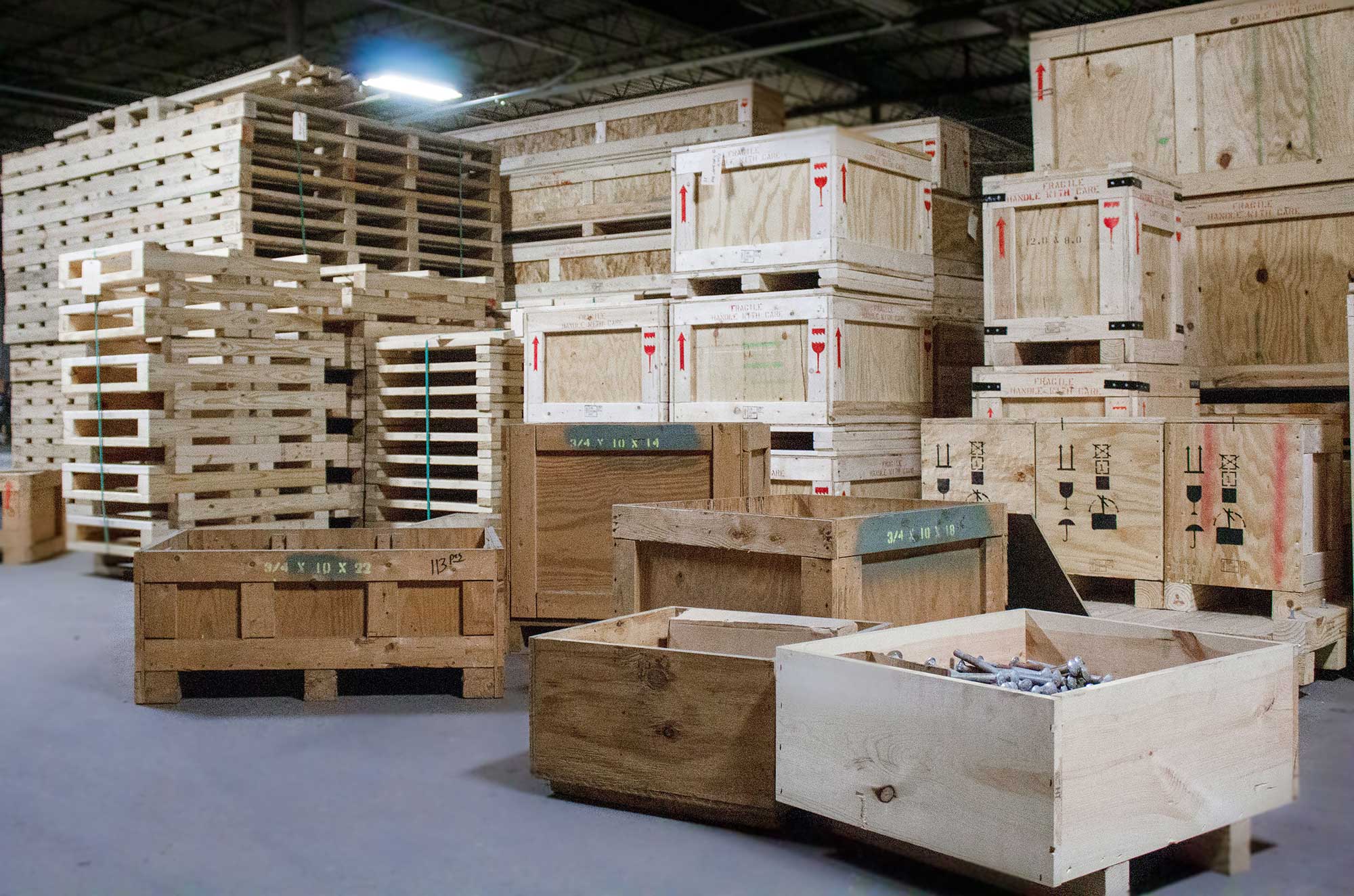REGULATORY UPDATE
September 20, 2005
Listed below you will find proposed implementation dates by country for the adoption of IPPC’s ISPM 15: Guidelines for Regulating Wood Packaging Material in International Trade . This information has been provided by the National Wooden Pallet and Container Association and forwarded to your organization by Timber Products Inspection in order to give you the most up-to-date information regarding regulations that effect your wood packaging material.
Based on published regulations by the countries below, the following are now or soon will be enforcing ISPM 15:
US, Mexico and Canada have revised their implementation of ISPM 15 with a 3-phase approach:
Phase 1 (September 16, 2005 – January 31, 2006) – No action will be taken but notification will be issued to importers that are not using ISPM 15-compliant wood packaging.
Phase 2 (February 1, 2006 – July 3, 2006) – Rejection of non-compliant wood packaging will be enforced. Quarantine expenses will be billed to the importer.
Phase 3 (starting July 4, 2006) – Full enforcement, all imported wood packaging must be ISPM 15-compliant.
Wood packaging from Canada going to the US remains exempt from treatment and marking if Canadian lumber is used. However, an import declaration (Wood packaging in this shipment is derived from trees harvested in Canada or US) is required. A “Made in Canada” stamp is not acceptable.
Canadian pallets made from imported lumber: APHIS tells us that a Canadian pallet made from imported lumber must be treated by ISPM-15 guidelines with treatment and marking. They are no longer exempt. NWPCA is assured by Trevor Yu, Forestry Program Officer with the Canadian Food Inspection Agency (Canada’s counterpart to the U.S. Animal and Plant Health Inspection Service) that Canada will not retaliate at this time; they say U.S. pallets are still exempt from treatment and marking. NWPCA will notify you if this situation changes.
Summary information for countries that have begun implementation or announced plans to implement ISPM-15:
Argentina: June 1,2005
Australia: September 1, 2004 (Variations to ISPM-15: Bark-free + packing declaration for ISPM-15 compliant WPM, 21-day rule does not apply); January 1, 2006 will add wood packaging used in break bulk and air cargo to their ISPM-15 enforcement.
Bolivia: July 23, 2005 (Variation: Debarked WPM)
Brazil: No date — awaiting publication of date in Official Journal.
Canada: September 16, 2005 (Note: Phase-in implementation; exemption granted to U.S.)
Chile: June 1, 2005 (Variation: Debarked WPM)
China: January 1, 2006 (Variation: MB fumigation for softwood packaging must use the 24-hour treatment schedule.)
Colombia: September 16, 2005
Costa Rica: January 1, 2005
Ecuador: September 20, 2005 (Date change: previously April 26, 2004)
Egypt: October 1, 2005
European Union: March 1, 2005 (See special conditions below)
Guatemala: September 16, 2005
India: November 1, 2004 (Variation: Phytosanitary certificate required only for WPM not ISPM-15 compliant)
Mexico: September 16, 2005 (Note: Phase-in implementation since January 1, 2004)
New Zealand: April 16, 2003 (Variation: Bark-free WPM)
Nigeria: September 30, 2004
Panama: February 17, 2005
Peru: March 1, 2005
Philippines: June 1, 2005
South Africa: January 1, 2005 (Variation: 24-MB schedule for softwood packaging)
South Korea: June 1, 2005 (Variation: MB fumigation for softwood packaging must use the 24-hour treatment schedule.)
Switzerland: March 1, 2005
Turkey: January 1, 2006 (Variation: Debarked WPM)
U.S.: September 16, 2005 (Note: Phase-in implementation; exemption granted to Canada — must provide import declaration that shipment derived from trees harvested in U.S. or Canada — import lumber must be ISPM-15)
Venezuela: June 1, 2005
European Union (EU) the European Union (EU) (Austria, Belgium, Denmark, Finland, France, Germany, Greece, Italy, Luxembourg, Ireland, Netherlands, Portugal, Spain, Sweden and the United Kingdom)
The European Union began enforcement of ISPM-15 March 1, 2005. The E.U. deferred for a year their debarking and bark-free specifications (see dunnage exception below), but claim they will present technical justification for the additional requirements and begin enforcement March 2006. The E.U. has some variations that need to be clarified:
Marking: Until December 31, 2007 the E.U. will accept all previously recognized marks for heat treatment (HT, “no-bug” logo, and ISPM 15 mark). For fumigation, however, they will only accept the ISPM 15 mark; if you have wood packaging with the previous fumigation mark you must re-treat and re-mark.
Dunnage: If dunnage is treated and marked it need not be bark-free. If dunnage is not marked it must be bark-free and devoid of pests and signs of live pests.
If the E.U. implements debark and bark-free requirements in March 2006 as they plan, dunnage must comply with the same treatment, marking and debarking as all other wood packaging.
ISPM-15 Requirements
Compliance with ISPM-15 for wood packaging materials allows for two treatment options:
Heat Treatment (HT): Wood packaging material should be heated in a schedule that achieves a minimum core temperature of 56ºC for a minimum of 30 minutes. The American Lumber Standards Committee administers the U.S. certification program for heat treatment.
Methyl Bromide (MB) Fumigation: The wood packaging material should be fumigated with methyl bromide. NWPCA has been tasked by the U.S. Animal and Plant Health Inspection Service to administer the fumigation program.
NOTE: ISPM 15 requirements apply to all species of coniferous (softwood) and non-coniferous (hardwood) packaging materials.
Should you have any questions, do not hesitate to give us a call. We certainly appreciate your business.
Express Packing and Forwarding Inc. 317-821-3734 express@expresspacking.com


